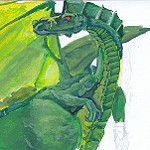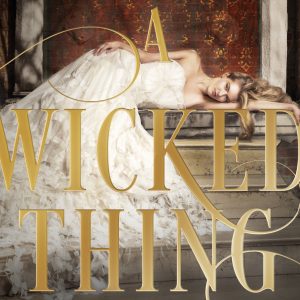Any fiction writer who deals in speculative elements must eventually decide: How much of this story requires a realistic, grounded explanation at the end, and how much can I leave unexplained because, hey, it’s magic, supernatural, paranormal, metaphysical, or miraculous? Can’t I just get to the end and say it was all unexplainable and leave it at that?
My short answer is no. In broad strokes, stories ask questions and then answer them. The human brain has some hardwired, logic-based pathways where story is concerned. Part one: Set up the pins. Part two: Knock them down. Sounds simple, but let’s be honest. It’s not.
The first half of any manuscript is easier to write than the second—which is why millions of would-be authors never finish anything. It’s fun to set up lots of evocative, compelling, mysterious, hooky questions at the beginning of a story. Then you get to the halfway point, and you must come up with answers. And not just any answers, but satisfying answers. Meaningful answers. Twisty answers. Worthwhile answers. Delightfully shocking or surprising answers.
That’s hard.
I attended a panel of speculative-fiction writers at AWP many years ago. One panelist admitted that he, years prior, wrote 150 pages about a guy who lived in a house with a door to an upstairs room that couldn’t be opened. Every now and then, a light would come on in that room and shine through the cracks in the door frame. Although the author was having fun writing about this guy and his creepy house, he eventually abandoned the novel—he himself couldn’t figure out what or who was behind the door. He had some ideas, but he knew that after 150 pages of setup, readers would be expecting a big payoff, and he just didn’t have it.
Stephen King tried three times over several decades to write what eventually became Under the Dome. He knew he wanted to write about a town suddenly and mysteriously trapped under a massive, impenetrable bubble…but he didn’t know where the dome came from. He knew he couldn’t write the story without that key piece of information. His understanding that readers wouldn’t accept “the dome just was”—and his unwillingness to accept it himself—is part of what makes King a master storyteller.
Heart-Shaped Box by Joe Hill is based on a stellar, high-concept premise: An aging rock star who collects occult objects buys a haunted suit on the internet. It’s not enough to ask readers to just accept that the suit is haunted and be satisfied. Readers are literally reading the book to find out the answers to who is haunting the suit, and why, and what the suit wants from the protagonist, and how the protagonist is going to defeat it. Why is the antagonism between them viscerally personal and not merely incidental? Couldn’t anyone have bought the suit on the internet? Turns out, no. And that is part of the mystery that makes Heart-Shaped Box such a satisfying read.
The fun thing about being a speculative-fiction writer is that your explanations can be spectral. They can defy the laws of our natural world. They can presuppose technologies that don’t exist, discoveries that have not been made. But that’s also what makes writing spec-fic more challenging. Since spec-fic writers can leave some things unexplained, they must search for their story’s best ratio of explainable to unexplainable.
For instance, in Heart-Shaped Box, we suspend our disbelief only so far as is necessary to accept that a vengeful ghost inhabits the suit. That’s all. For everything else, readers’ logical story brains require rational second- and third-act explanations. How did the ghost end up in the suit? How did the suit end up on the internet? How did our protagonist, who was the intended buyer all along, happen to be browsing the internet at just the right time and click “buy” before anyone else did? If Hill had said, “It just worked out that way because it’s supernatural,” the book never would have been published.
Leading readers down a path that ends with “it was all supernatural” is too easy—and whatever is too easy for writers is often not satisfying for readers. Think about the relationship between real life and fiction. In real life, people get obsessed with some dark mystery or true-crime drama, like the Amityville Horror house. We search the internet and watch all the documentaries and movies and TV shows and interviews about Amityville. We feed our imaginations with information. The question of what really happened there is just too compelling to let lie! We consider rational explanations (it was just a crazy kid killing his family with a shotgun) as well as supernatural ones (the evil entity that resides in the house made the kid do it) as we try to arrive at our own conclusions. All the while, we are driven almost mad by the reality that we can never actually know the truth.
That is exactly why fiction is so satisfying! Because the author takes us where reality cannot. The author gives us conclusions and explanations that in real life we will never have. The author answers all the hard questions in ways that our logical story brains accept—at least for as long as we are inside that story world, and sometimes longer. Sometimes, with the very best fiction, forever.
After all this, I wish I could give you some magic ratio of explainable to unexplainable that will make every story you write satisfying. I can’t. Every story is different. Every speculative subgenre shoulders its own set of reader and fan expectations.
What I will offer is this: Readers won’t suspend their disbelief if you’ve given them nothing to suspend it from. The more suspension of disbelief you’re asking of readers, the stronger your story’s logical, rational, realistic framework has to be. Build plausible conditions in which your speculative conditions can thrive, and tie up all your loose ends. If you want happy readers, that’s a good place to start.






